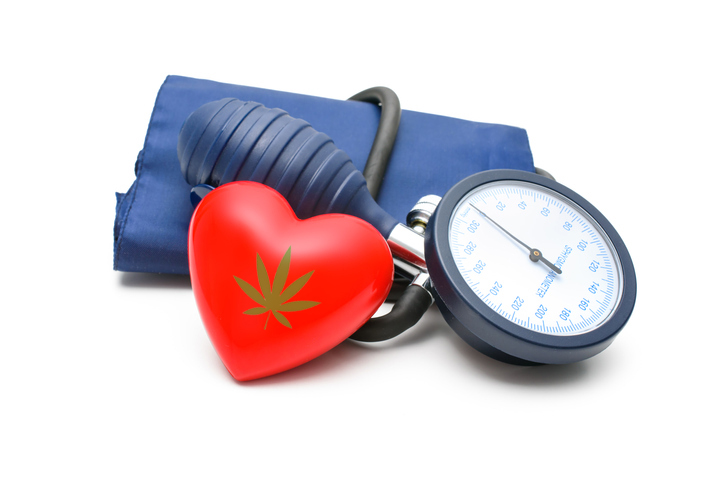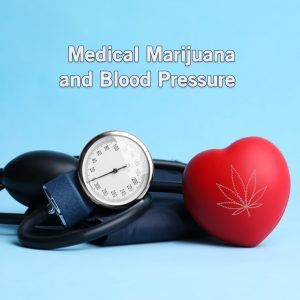Did You Know Blood Pressure…?
Medical Marijuana and Blood Pressure
 While High Blood Pressure is not an approved ailment for treatment with Medical Marijuana, some patients using MMJ have this additional condition.
While High Blood Pressure is not an approved ailment for treatment with Medical Marijuana, some patients using MMJ have this additional condition.
Marijuana tends to raise blood pressure slightly during the initial few minutes of medicating (specifically smoking) and then lowers it for the rest of the time you are medicated. Patients should be especially careful if they:
- Have naturally low blood pressure
- Take other medications to lower their blood pressure
- Are older (>55 years)
- Orthostatic (or Postural) Hypotension is the momentary low blood pressure condition that many people get when they stand up. It makes you dizzy and a bit faint for a few seconds. This condition becomes more common as we age, so older patients should be particularly aware.
High blood pressure, if left uncontrolled, is destructive to the human body and can lead to a heart attack, stroke or kidney disease. High blood pressure can be caused, or further exasperated by stress, chronic anxiety, and poor sleeping habits.
While High Blood Pressure is not an approved ailment for treatment, Medical Marijuana, especially Indica or Indica‐leaning hybrid strains, is known to be very effective at improving sleep and helping reduce anxiety.

marijuana and blood pressure how it helps
As a general rule, MOST patients have to remain on their blood pressure medication, when medicating with Medical Marijuana. Some patients may be able to reduce the dose that they are taking, but this is very specific to individual patients and they should always consult their doctor for guidance before employing cannabis or adjusting their medication dosage.
Cardiovascular Effects of Medical Marijuana
The most consistent acute physiological effect of smoking Medical Marijuana is dose‐related tachycardia (rapid or accelerated heart rate, typically over 110 bps). When the heart beats excessively rapidly, it pumps less efficiently and provides less blood flow to the rest of the body, including the heart itself.
While cardiovascular changes have not usually been a problem for healthy users, the tachycardia induced by chronic cannabis smoking may be a problem to those already suffering from cardiac disorders or angina (chest pain, a symptom of coronary artery disease).
In addition to postural hypotension cannabis also causes peripheral vasodilatation (widening of blood vessels), which can impact body temperature perception and is involved in the characteristic red eyes effect. The mechanisms for those effects on the human nervous system are not currently well understood.
Information provided here is excerpted from sources including The National Institutes of Health, Mayo Clinic, WebMD, and other scholarly sources. This information is intended only to complement, not to replace or contradict, any health or medical advice or information provided by healthcare professionals. Patients who have questions should seek guidance their doctor or other healthcare professional.